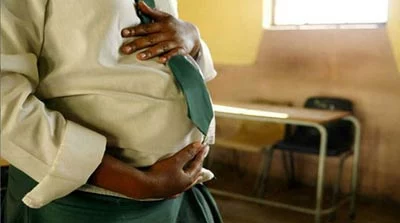Gauteng health department has sounded an alarm on the increasing number of teenage pregnancies in the province.
This follows the visit by MEC for health and wellness Nomantu Nkomo-Ralehoko to three township schools in Ekurhuleni last week. The schools are Nkumbulo Secondary School, Zimisele High and Langaville Secondary School, in the neighbouring communities of KwaThema and Langaville.
Expressing her disappointment with the high number of pregnant girls in the metro, Nkomo-Ralehoko said teenage pregnancy is a societal problem.
According to the department, teen mothers have given birth to over 13 700 babies in the province in the current financial year.
“The challenge of teenage pregnancy is a societal one and requires a transdisciplinary and collective approach. All sector of society must play an active role in addressing this pandemic effectively,” Nkomo-Ralehoko said in a statement.
“I would like to urge every member of society to join hands with government in empowering our learners with information that will enable them to make informed decisions without jeopardising their future.”
To tackle the ever-growing number of teen mothers, Gauteng health has established Youth Zones within some of the health facilities in the province. These are safe spaces offering youth-oriented services by young healthcare workers to address health issues affecting both young males and females.
In addition, the department has also partnered with organisations and initiatives such as Love Life, Wits RHI, Shout it Now, Anova, Soul City, Triggerise, Mobile Health Clinics and #KeReady to promote health among learners and youth.
Gauteng forges partnerships against scourge
The department has vowed to forge to close cooperation with departments such as social development and basic education, and multiple other stakeholders, to intensify the fight against the scourge of teen pregnancy this year.
The problem of teen pregnancy is compounded by other factors, such as the fathers of their children abandoning them.
Some of the the young mothers Sunday World spoke pointed to poverty at their homes which are mostly headed by single mothers.
One girl who became a mother at 17, said: “I am a single parent. It’s a great challenge but along the way I am also discovering a lot about myself as an individual. I am looking forward to passing matric so that I can make my dreams come true.”
Another teen who fell pregnant at 19 said that co-parenting is a challenge.
“I try my best to teach and raise my son a certain way and when he goes to his father they basically undo all the good things I taught him to do.”
A young mother who did not finish high school joined in on the conversation: “I am now 28. I fell pregnant when I was 14. I lost out on many experiences of being a child as I had become a mother during childhood. I struggled on on my own as I ended up being a single parent.”



